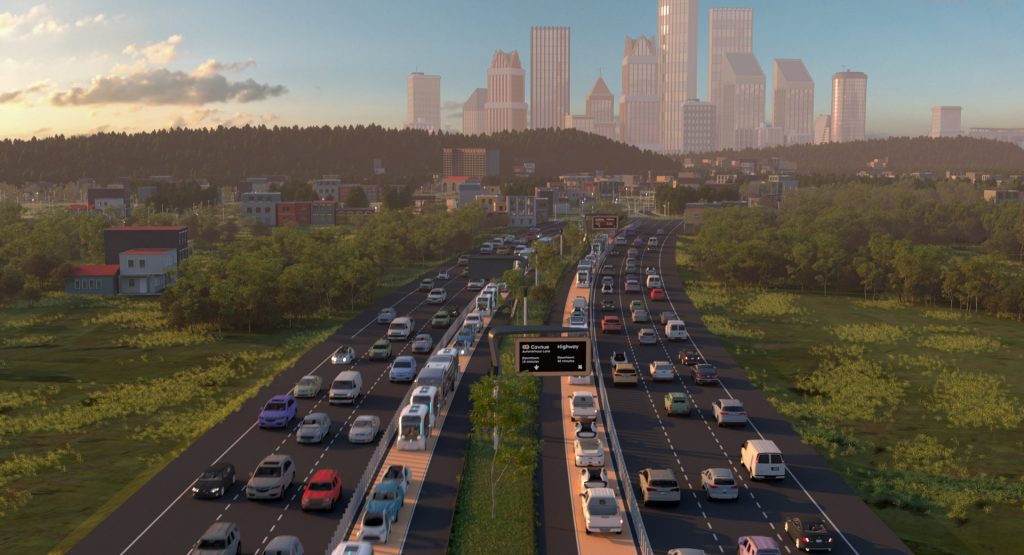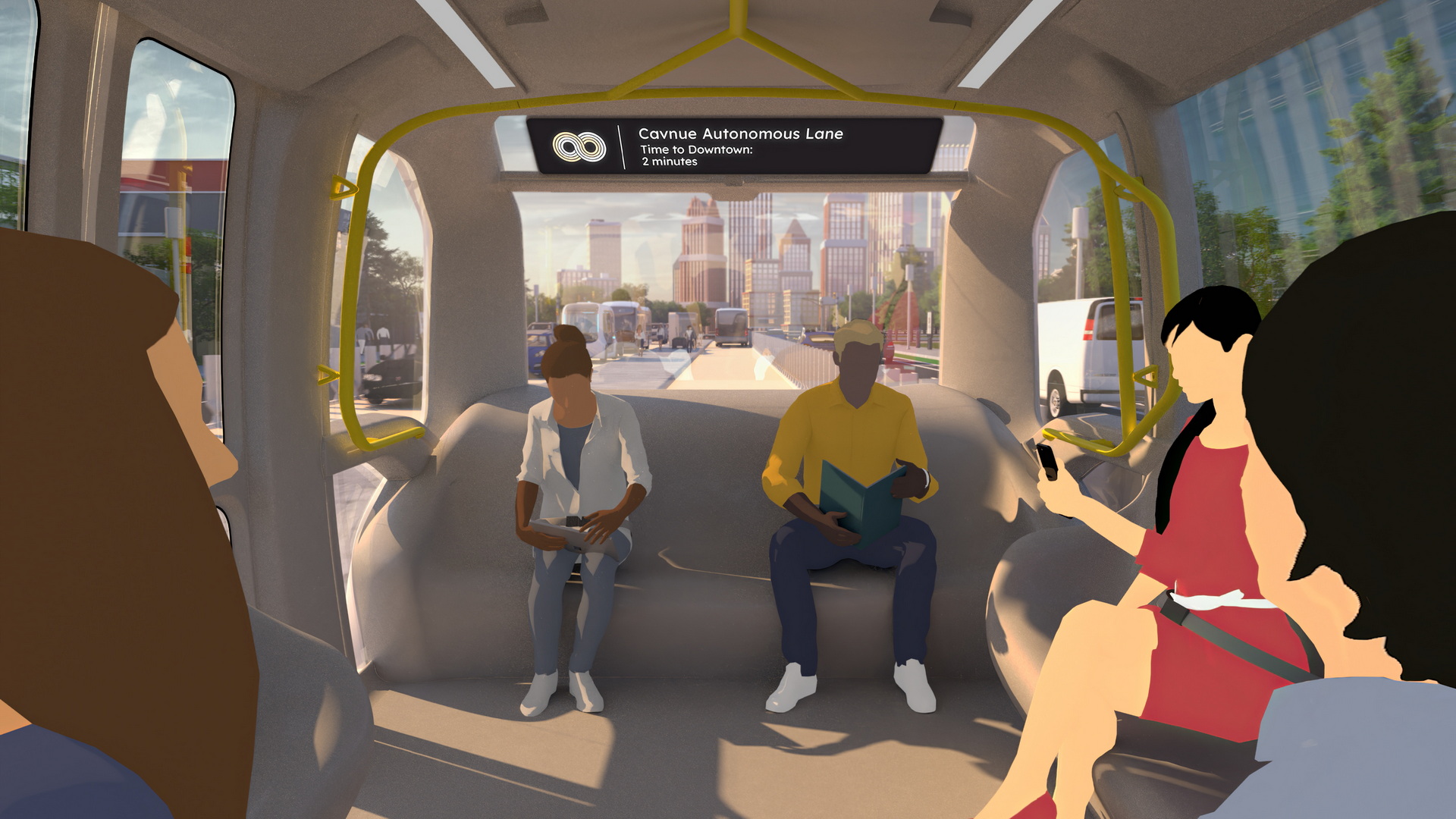A stretch of Interstate 94 that runs between Detroit and Ann Arbor, Michigan, is set to become the state’s first major artery designed specifically for autonomous vehicles. The roadway is being developed by the startup, Cavnue.
The company was selected by Michigan in 2020 to develop a “first-of-its-kind connected and autonomous vehicle (CAV) corridor” somewhere in the state. That place has now been identified as the 25-mile (40 km) stretch of road between the two cities, reports Automotive News.
The plan is to dedicate a lane of traffic along the route to autonomous vehicles, installing necessary infrastructure to ease the progress of the new technology. Moving forward, Cavnue will work with the Michigan Department of Transportation on traffic studies, environmental analysis, road design, operational planning, and public outreach as it prepares to create the AV-friendly road.
Read Also: Nissan Previews Autonomous System With Clever Collision Avoidance, Teases New EV Crossover Too
“We will prove to the world that we can create an operating environment for advanced vehicles that is safer and more efficient than just a normal roadway,” said Cavnue CEO Tyler Duvall. “So next year is a big year. This year is what I call the detailed planning work.”
To support this work, as well as other projects, the Washington, D.C.-based company just closed a Series A funding round of venture capital that totaled $130 million. The investment was led by Ford and Sidewalk Infrastructure Partners, which has a connection to Google’s parent company, Alphabet.
The costs of the project are still being determined but Cavnue expects to make a nine-figure investment.
“It’s a capital-intensive business,” Duvall said. “We did need to do kind of a meaty fundraise, and we needed to ensure that we had the capital, and we want the state to have confidence in us as a partner as well.”
Michigan plans to explore autonomous infrastructure for other roadways throughout the state, but I-94 was selected as a “cleaner, less complicated testbed to start with.” Duvall said that he expects that Michiganders will have to wait until 2024-2025 before they can drive down a section of the interstate that is dedicated to autonomous vehicles.





